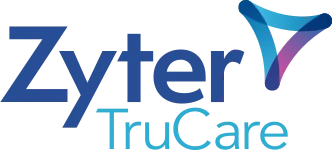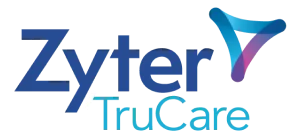The Office of the National Coordinator for Health IT (ONC) has introduced the HTI-2 proposed rule, marking a significant step toward enhancing interoperability and securing health information across the United States. This proposed rule is crucial for advancing how health data is managed and ensuring more efficient healthcare processes. Here’s a detailed look at the implications of the HTI-2 rule and how Zyter|TruCare is gearing up to help healthcare organizations navigate these changes.
Key Aspects of the HTI-2 Proposed Rule
Important Dates:
- Rule Announcement: July 10, 2024
- Implementation Deadline for Certification Criteria: January 1, 2028
Detailed Provisions:
- Enhanced Data Exchange: Building on the HTI-1 rule, published in January 2024, the HTI-2 rule aims to improve the exchange of crucial health data such as immunization records, imaging, and electronic lab reporting, facilitating quicker and more effective responses.
- Streamlined Prior Authorization: The proposed rule also expands upon the Interoperability and Prior Authorization final rule (89 FR 8758) by developing application programming interface certification criteria standards, which will ultimately expedite the prior authorization process, reducing delays in patient care and administrative burdens.
- Robust Cybersecurity Enhancements: With a focus on increasing the security of health information, the rule mandates multifactor authentication and server-side data encryption for electronic health records (EHRs).
Expanding on the HTI-2 Proposed Rule
Improving Data Sharing Capabilities:
- The HTI-2 rule updates certification criteria to make it easier to share and analyze data without relying on outdated methods like faxing or phoning.
- New data elements under the United States Core Data for Interoperability (USCDI) version 4 include healthcare facility information, specific lab data, and allergy and intolerance information, which are essential for reducing health inequities and advancing value-based care.
- Health IT systems used by Part D plan sponsors must adhere to the Real-Time Prescription Benefit certification criterion and allow users to perform certain electronic transactions, such as reviewing member benefit information, coverage restrictions, drug pricing and alternative therapy options, using at least one of the versions of the NCPDP RTPB standard.
Reducing the Burden of Prior Authorization:
- By establishing certification criteria for payer APIs, the rule aims to make the prior authorization process more efficient with the Interoperability and Prior Authorization final rule (89 FR 8758).
- This approach is expected to handle the bulk of transaction issues, simplifying complex scenarios and providing more immediate resolution to authorization requests.
Enhancing Cybersecurity and Patient Privacy:
- The proposal includes the establishment of multifactor authentication and encryption of authentication credentials, which are crucial in protecting against cyberattacks.
- Additional cybersecurity measures include encryption of data on servers, ensuring that sensitive information remains secure even if accessed through end-user devices.
- The proposed rule also includes a new “Protecting Care Access” exception, which serves to strengthen patient and provider privacy.
How Zyter|TruCare is Preparing for HTI-2 Compliance
API Integration for Improved Interoperability: Zyter|TruCare is enhancing its API capabilities to align with the new interoperability standards introduced in HTI-2. Our solutions ensure seamless and secure data exchanges between healthcare providers and payers, which is essential for improving healthcare delivery and outcomes.
Advancing Data Security: In response to the cybersecurity enhancements outlined in HTI-2, Zyter|TruCare has already implemented robust security measures including multifactor authentication and encryption across all data exchanges and storage. We continuously update our security protocols to stay ahead of potential cyber threats, ensuring compliance and safeguarding patient data. We are proud to report that we are HITRUST and SOC2 certified.
Supporting Efficient Healthcare Processes: Zyter|TruCare is optimizing its platform to support the streamlined processes for prior authorization as mandated by the new rule, reducing turnaround times and enhancing provider and patient satisfaction. We are also prepared to handle the increased data elements included in USCDI version 4, ensuring our systems are equipped to meet evolving data standards and enhance operational efficiency.
Looking Forward
Zyter|TruCare is embracing and implementing the changes brought by the HTI-2 proposed rule. As these changes are phased in, we are committed to ensuring that our clients are not just compliant but are leaders in a more integrated, secure, and efficient healthcare ecosystem.
Stay ahead of the curve with Zyter|TruCare’s key solutions. Contact us today to discover how our technologies can help your organization seamlessly meet the upcoming changes brought about by the HTI-2 rule and capitalize on the benefits of enhanced interoperability and security.



















